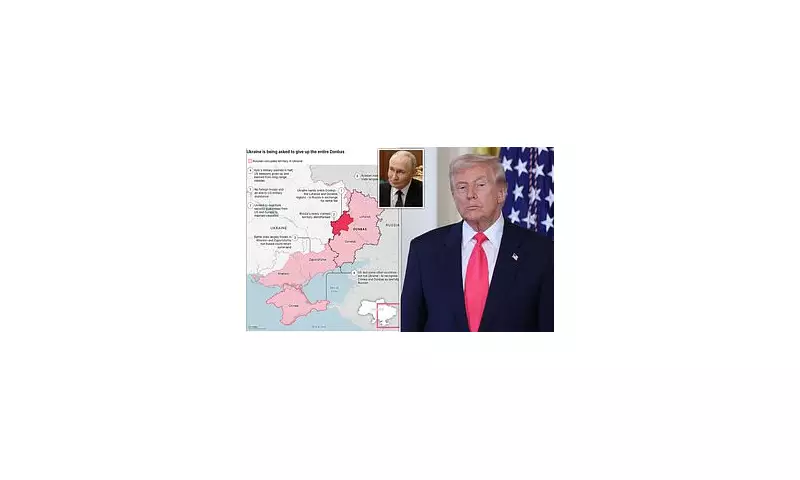
A controversial 28-point peace plan drafted by officials representing Donald Trump and Vladimir Putin would demand significant concessions from Ukraine while offering Russia a swift return to international legitimacy, according to documents obtained by news outlets.
The Proposed Settlement Terms
The comprehensive proposal, which has been described as "heavily tilted towards Vladimir Putin" by sources quoted in the Financial Times, would fundamentally reshape Ukraine's security posture and territorial integrity. Under the plan, Ukraine's military would be reduced from its current strength of over 900,000 personnel to just 600,000, severely limiting its defensive capabilities.
Perhaps most significantly, Ukraine would be permanently barred from seeking NATO membership, a key strategic objective that Volodymyr Zelensky's government has pursued since Russia's full-scale invasion began. The plan contains only a single line addressing Ukraine's unspecified "security guarantees" while explicitly prohibiting the deployment of any NATO troops from the UK-led coalition on Ukrainian territory.
The territorial arrangements would see Crimea internationally recognised as de facto Russian territory, alongside the Donbas regions of Donetsk and Luhansk. Despite Ukraine still controlling approximately 14.5% of the territory there, the country would be forced to surrender its industrial heartland - the mineral and coal-rich eastern Donbas region.
Economic Implications and Reconstruction
The economic components of the proposal would provide substantial benefits to both Russia and the United States. Moscow would receive roughly two-thirds of the €300 billion (£265bn) in sovereign assets currently frozen in Europe, with the remaining €100 billion allocated towards reconstruction efforts in war-torn Ukraine.
In a controversial arrangement, the United States would receive 50% of profits from rebuilding projects, while European nations would be expected to contribute an additional €100 billion to reconstruction efforts. The Russian economy would also receive a boost through a long-term economic cooperation agreement with the U.S., including rare earth metal extraction projects in the Arctic.
Diplomatic Reactions and Timeline
The plan was drafted by Trump's envoy, Steve Witkoff, and Kremlin adviser Kirill Dmitriev, and was presented earlier this week to Rustem Umerov, a high-ranking member of Zelensky's government, during meetings in Miami. According to a senior U.S. official speaking to CBS News, Umerov "agreed to the majority of the plan, after making several modifications" before presenting it to President Zelensky.
European leaders have already expressed significant reservations about the proposal. French Foreign Minister Jean-Noel Barrot stated that "peace cannot be a capitulation", indicating that European countries would not accept demands for Kyiv to make punishing concessions. The sentiment reflects broader European concerns about the plan's implications for regional security.
Ukrainian officials revealed that the U.S. wanted Zelensky to sign the proposal before Thanksgiving next week, a tight deadline that sources suggest gives Kyiv insufficient time to negotiate better terms. President Zelensky confirmed on X that "the American side presented points of a plan to end the war - their vision" and that teams would work on the points to ensure genuineness.
The Ukrainian President is expected to meet with Donald Trump in the coming days to discuss the proposals further, amid growing international scrutiny of a plan that critics argue would reward Russian aggression while leaving Ukraine vulnerable to future military action.





